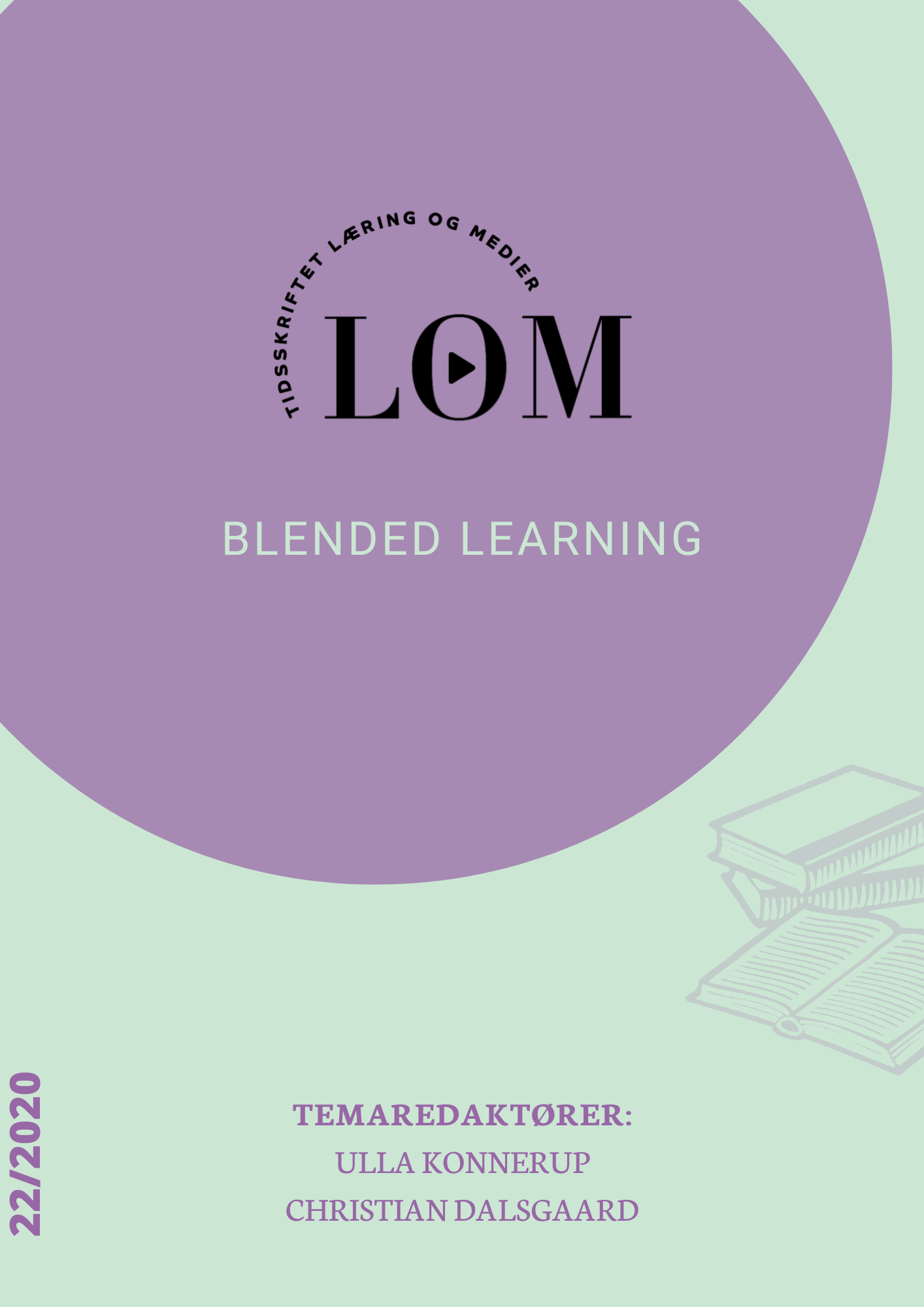The importance of digital transformation for the concept of new knowledge
DOI:
https://doi.org/10.7146/lom.v12i22.117999Keywords:
New knowledge, Digital transformation, The way new knowledge is obtainedAbstract
Knowledge can be understood in multiple ways and similarly, knowledge types and what it means to know something can be described in different ways. The Danish Ministry of Higher Education and Science in the Ministerial Order on Academy Profession and Professional Bachelor Study Programmes describes the type of knowledge which, according to the Ministry, students must have obtained at graduation. Overall, these types of knowledge must represent new knowledge. It is unknown if new knowledge and the way knowledge is obtained are affected by the digital transformation. The purpose of this study was to investigate how students and educators understand the concept of new knowledge as well as how and through which channels they search for new knowledge.The results of the study showed that understanding of the concept of new knowledge was similar among both students and educators. Moreover, students and educators did not believe the definition of the concept of new knowledge was affected by the digital transformation. There were no major differences in the way students and educators searched for and gathered new knowledge. It seems that searchstrategies among students and educators have changed during the past 10 years; this may be partly explained by the digital transformation.
Downloads
References
https://medarbejdere.au.dk/fileadmin/www.medarbejdere.au.dk/Kommunikation/Twitter_guidelines_til_fo
rskere_180515.pdf
Danmarks Statistik. (2019). Statistikbanken. Retrieved from
https://www.statistikbanken.dk/statbank5a/default.asp?w=1500
Gustavsson, B. (2000). Vidensfilosofi. Aarhus: Klim. Retrieved from https://www.bog-
ide.dk/produkt/237254/bernt-gustavsson-vidensfilosofi
Kampylis, P., Punie, Y., Devine, J., & Institute for Prospective Technological Studies. (2015). Promoting effective
digital-age learning : a European framework for digitally-competent educational organisations.
Publications Office.
Kvale, S., & Brinkmann, S. (2014). Interview : det kvalitative forskningsinterview som håndværk. København:
Hans Reitzels Forlag. Retrieved from https://www.saxo.com/dk/interview_steinar-
kvale_haeftet_9788741263779?dfw_tracker=13098-
28292072&gclid=Cj0KCQjwoKzsBRC5ARIsAITcwXEjL7nuyuz_0fMNNCOLvVaLtNbj-HgO9AI-
FwNXGwNOntfIRV36DlUaAp9IEALw_wcB
Mindshare. (2016). Gør sociale medier danskerne dummere? - Blogmindshare. Retrieved September 25, 2019,
from https://blogmindshare.dk/2016/11/22/goer-sociale-medier-danskerne-dummere/
Mønsted. Sabrine. (2014). Lær At Bruge Den Viden Sociale Medier Gemmer. Bibliotekar Forbundets
Fagmagasin. Retrieved from
https://bf.dk/perspektiv/fagmagasinet/2014/perspektiv7/laeratbrugedenvidensocialemedier
Newman, T., Beetham, H., & Knight, S. (n.d.). Digital experience insights survey 2018: findings from students in
UK further and higher education. Retrieved October 22, 2019, from
https://digitalinsights.jisc.ac.uk/news/digital-experience-insights-survey-2018-findings-students-uk-further-
and-higher-education/
Redecker, C. (2017). European Framework for the Digital Competence of Educators: DigCompEdu.
https://doi.org/10.2760/159770
Statistics Denmark. (2018). Publikation: It-anvendelse i befolkningen 2018 - Danmarks Statistik. Retrieved
October 23, 2019, from https://www.dst.dk/da/Statistik/Publikationer/VisPub?cid=29448
Uddannelse- og Forskningsministeriet. (2018). Teknologisk upgrade på de videregående uddannelser —
Uddannelses- og Forskningsministeriet. Retrieved October 22, 2019, from
https://ufm.dk/uddannelse/videregaende-uddannelse/puljer/teknologisk-upgrade
Uddannelses- og Forskningsministeriet. (2015). Bekendtgørelse om uddannelsen til professionsbachelor som
lærer i folkeskolen - retsinformation.dk. Retrieved September 25, 2019, from
https://www.retsinformation.dk/Forms/R0710.aspx?id=174218
Uddannelses- og Forskningsministeriet. (2016). Bekendtgørelse om uddannelsen til professionsbachelor i
radiografi - retsinformation.dk. Retrieved September 25, 2019, from
https://www.retsinformation.dk/Forms/R0710.aspx?id=180540
Uddannelses- og Forskningsministeriet. (2018). LEP-bekendtgørelsen - Bekendtgørelse om
erhvervsakademiuddannelser og professionsbacheloruddannelser - retsinformation.dk. Retrieved September
25, 2019, from https://www.retsinformation.dk/Forms/r0710.aspx?id=202205
Vallgårda, S., & Koch, L. (2011). Forskningsmetoder i folkesundhedsvidenskab. Munksgaard Danmark. Retrieved
from https://www.saxo.com/dk/forskningsmetoder-i-folkesundhedsvidenskab_signild-
vallgaarda_haeftet_9788762810280?gclid=Cj0KCQjwoKzsBRC5ARIsAITcwXEg6WzzVADfefREi92RLSe6j5n
TDSGM0NlK8Js8tKNpm1reyF4dTtUaAmyOEALw_wcB
Downloads
Published
How to Cite
Issue
Section
License

Articles published in the Journal of Learning and Media are licensed under a Creative Commons Attribution-NonCommercial-NoDerivatives 3.0 Unported Licens.
Authors retain copyright and grant the journal right of first publication; simultaneously articles are licensend under the Creative Commons Attribution license: Attribution-NonCommercial-NoDerviatives (by-nc-nd). Read about this license at https://creativecommons.org/licenses/by-nc-nd/3.0/
---
At LOM.dk, you will also find articles from the discontinued Journal for the Continuing and Further Education of the Danish Universities (UNEV). Note that special rules apply to UNEV articles:
It is the authors and any other copyright holder who have the copyright of articles published under the auspices of UNEV, and access to the articles is contingent on users acknowledging and complying with the associated legal guidelines:
- Users may download and print one copy of any UNEV publication for private studies or research.
- The redistribution of articles or the use of these for revenue-funded activities or commercial purposes are not allowed.
- It is not allowed to distribute the URLs of UNEV articles.


